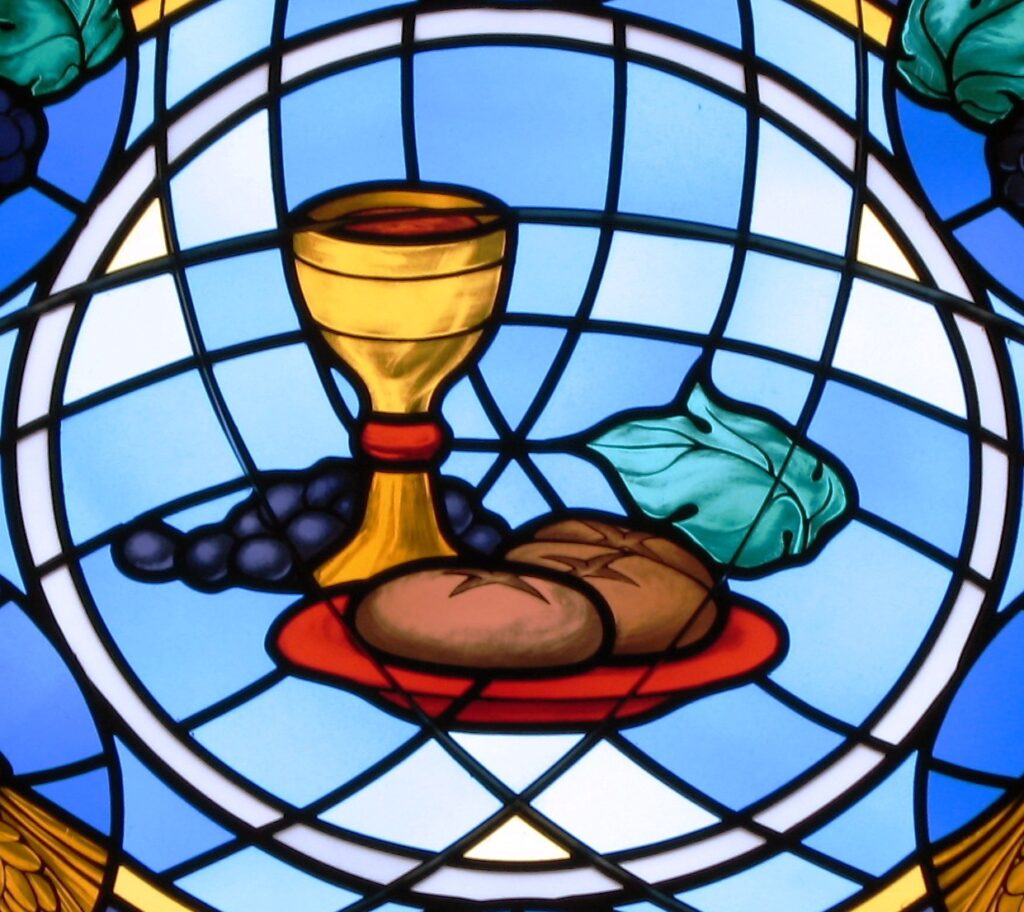The sun-kissed rays of a tranquil Sunday morning stream through the stained glass windows, casting a warm kaleidoscope of colors on the solemn faces of the congregants. As they gather around the communion table, anticipation fills the air, for this moment transcends the physical realm. Through the Eucharist, a divine connection intertwines with our earthly existence, offering solace, unity, and spiritual nourishment.
Imagine, if you will, a humble yet captivating church nestled within a quaint countryside. As the worshippers enter, absorbing the enchanting aura that reverberates from within, a unique ceremony awaits them—one that unravels the mystery of consecrated bread and wine. The doctrine of consubstantiation, central to the Protestant faith, adds an intriguing layer to the holy sacrament of communion.
Rediscovering the Power of Symbolism
In this exploration of communion, we must first embrace the beauty of symbolism. At the heart of consubstantiation lies the understanding that the bread and wine, though retaining their earthly essence, take on a deeper significance. They symbolize the body and blood of Christ, serving as a tangible conduit between the spiritual and physical realms. This understanding allows us to experience the profound impact of Christ’s sacrifice on a deeply personal level.
Divine Presence in the Ordinary
Consubstantiation encourages us to recognize the divine presence in the ordinary—how the sacred infiltrates the mundane. Just as the bread and wine remain ordinary elements, their transformation during communion reminds us that divinity can be found within everyday life. This revelation offers solace and inspiration, allowing us to view the world through a lens of enchantment.
Nurturing Fellowship and Unity
As the congregation gathers around the communion table, a sense of togetherness prevails. The doctrine of consubstantiation emphasizes the communal aspect of the Eucharist, transcending individual experiences. In partaking of the body and blood of Christ together, we forge a bond that unites us as one body—a symbol of the interconnectedness that lies at the core of our faith. Communion becomes a transformative act that shifts our focus from self to community, fostering empathy and strengthening our devotion to one another.
Embracing the Mystery
Consubstantiation invites us to accept and cherish the profound mystery interwoven within our faith. While our human minds may grapple with comprehending the fullness of this doctrine, it serves as a reminder that as mere mortals, we are limited in our understanding. Embracing the mystery emanating from the concept of consubstantiation allows our faith to flourish, reaffirming our dependence on God’s infinite wisdom.
On The Path Towards Spiritual Enlightenment
In the depths of our spiritual journey, we uncover the profound significance and mystery of consubstantiation. As we partake in the holy sacrament of communion, we connect with the divine, embrace the transformative power of symbolism, nurture fellowship, and bask in the beauty of the ordinary. Let us approach the communion table with reverence and awe, allowing the doctrine of consubstantiation to inspire us, deepening our faith and guiding us on the path towards spiritual enlightenment.
